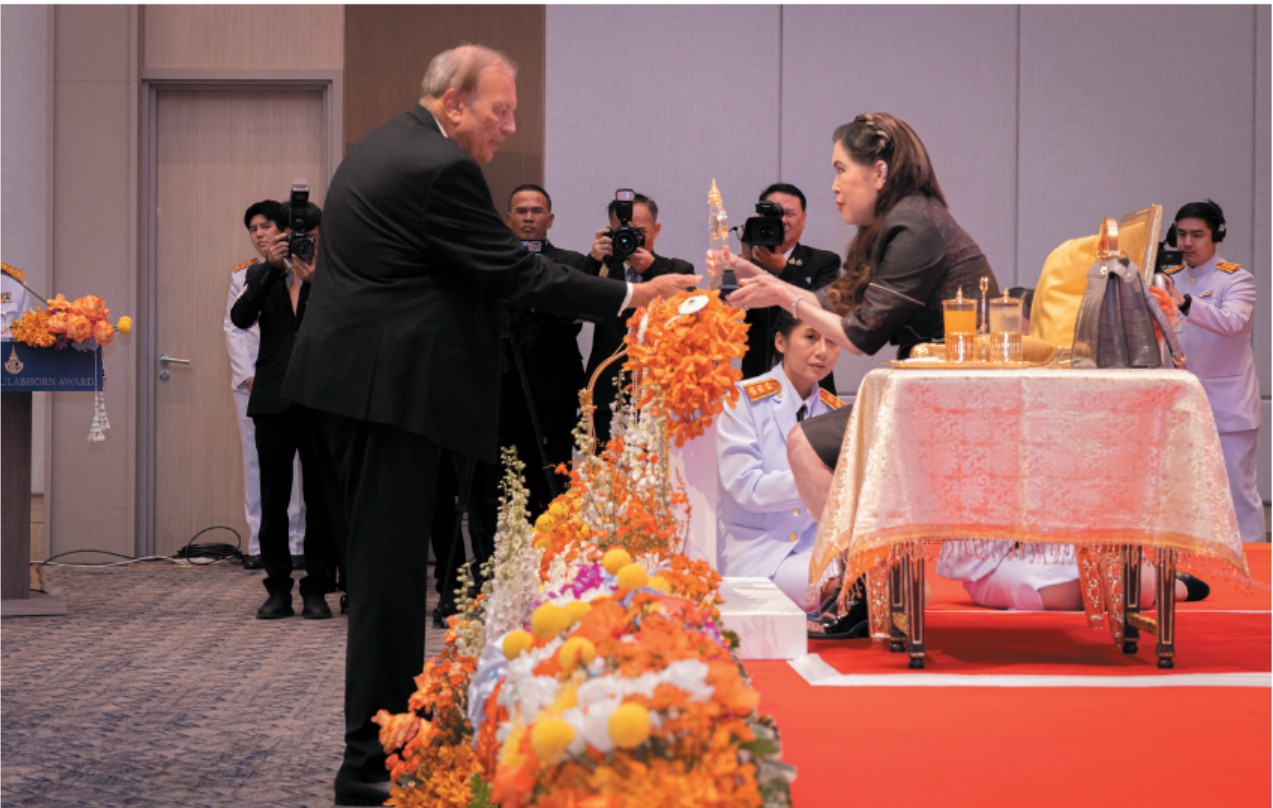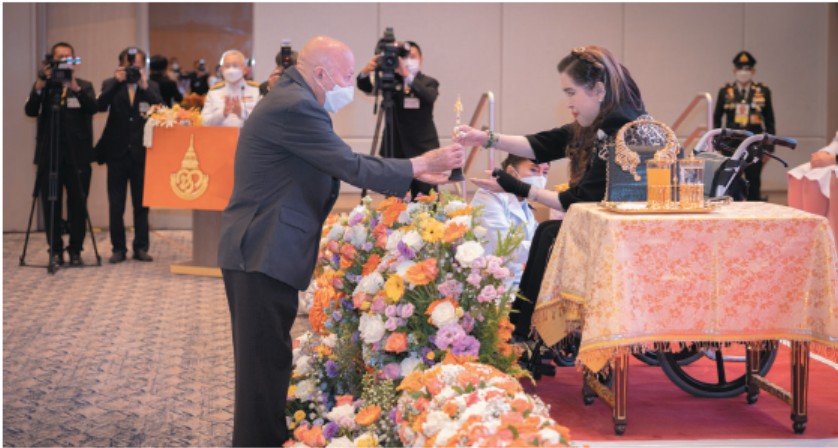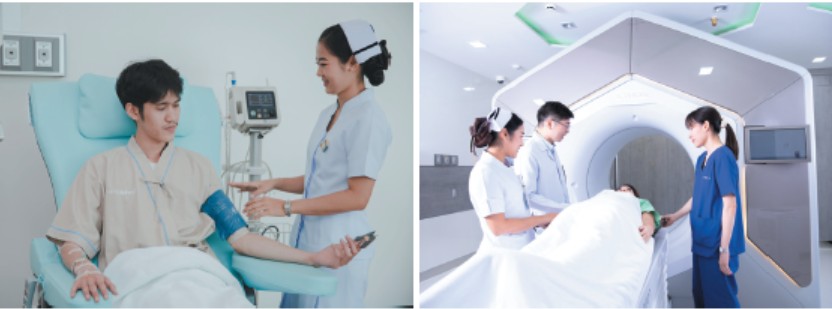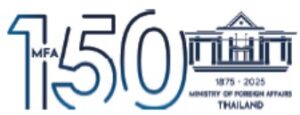
Cancer remains one of the gravest threats to global health. According to the World Health Organization’s International Agency for Research on Cancer, 9.7 million people died from cancer in 2022, and about 1 in 5 people will develop cancer in their lifetime. Meanwhile, newly diagnosed cases continue to escalate: in 2022, there were close to 20 million new cancer cases globally, and that number could reach 35 million by 2050, driven by population growth and aging.
Such numbers echo the world’s need for bold scientific breakthroughs that reimagine how cancer is prevented, treated and cared for. It is within this context that the Princess Chulabhorn Award stands out—a powerful symbol of recognition that celebrates scientific excellence in cancer prevention, treatment and care. The award also supports Thailand’s aspiration to become a hub for medical research and innovation, aiming to raise the standard of care worldwide.
Global Recognition for Scientific Excellence
The Princess Chulabhorn Award, established in 2022 to commemorate the 65th birthday of Professor Dr. Her Royal Highness Princess Chulabhorn Krom Phra Srisavangavadhana, conveys a message of noble purpose: that the fight against cancer is as much about advancing knowledge as it is about extending hope and dignity to patients everywhere.
The award confers international prestige upon scientists whose discoveries have fundamentally altered the trajectory of cancer research and treatment. Selected through a rigorous process, recipients are honored with a plaque and a prize of US$50,000. The recognition celebrates not just scientific accomplishment but also the transformative potential of research to improve human lives.

Prominent Recipients
The inaugural laureate in 2023 was Professor Abass Alavi, a pioneer whose work on positron emission tomography (PET) revolutionized diagnostic imaging. Professor Alavi and his team developed the use of fluorodeoxyglucose (18F-FDG) as a radiopharmaceutical for PET scans, which transforms how clinicians visualize disease. This breakthrough has saved countless lives and remains central to detecting cancers and other diseases.
The 2024 Princess Chulabhorn Award was conferred on Professor Dennis J. Slamon of the University of California. He is renowned for one of the most significant discoveries in modern oncology: the identification of the HER2 gene, which plays a critical role in the development of breast cancers. His research led directly to the development of Trastuzumab (Herceptin), the first targeted therapy for HER2-positive breast cancer. Today, Trastuzumab has turned what was once a near-fatal diagnosis into a manageable condition, and has changed the outlook for millions of patients worldwide.
These achievements embody the humanitarian purpose of medical research—the type of visionary work the Princess Chulabhorn Award seeks to honor. Such recognition encourages advances not only in science, but also in human welfare and well-being.
Medical Milestone
Long recognized for its medical expertise and healthcare infrastructure, Thailand has been consistently ranked among Asia’s top destinations for advanced treatment. Leading hospitals such as Bumrungrad International Hospital, which treats more than 500,000 foreign patients annually, and Siriraj Hospital, one of the largest public hospitals in Bangkok treating over three million patients a year, showcase both Thailand’s global reputation and its deep domestic expertise.
As part of Princess Chulabhorn’s efforts to improve the landscape of medical research and education in Thailand, she founded the Chulabhorn Research Institute in 1987, and the Chulabhorn Royal Academy in 2016.
These institutions drive laboratory breakthroughs as well as train researchers and clinicians from across the region, strengthening the pipeline of medical talent in Asia. In July 2025, Thailand marked a historic milestone with the domestic development and administration of its first targeted oral cancer drugs, a breakthrough that expands access and reduces dependence on costly imports.
IMCRANIB 100, approved by Thailand’s Food and Drug Administration in May 2025, represents a new frontier in Thai pharmaceutical capability. It targets tyrosine kinase enzymes, offering more precise and less toxic treatment options for chronic myeloid leukemia, acute lymphoblastic leukemia, gastrointestinal stromal tumors, and rare skin cancers.
Similarly, HERDARA, a locally developed version of the breast cancer drug Trastuzumab, has dramatically reduced treatment costs, cutting expenses from as much as 1 million baht (US$30,800) per course to a fraction of that amount. For patients reliant on Thailand’s universal healthcare system, these developments mean access to life-saving therapies that were once out of reach.
This transformation was made possible by the Chulabhorn Royal Pharmaceutical Manufacturing Facility, established in 2020 under Princess Chulabhorn’s vision. Certified to global standards, it is Thailand’s first fully integrated cancer drug facility, capable of bridging laboratory research and bedside application.

Lifelong Dedication
At the heart of these achievements is Princess Chulabhorn, whose lifelong dedication has transformed the landscape of medical research and education in Thailand. Trained as a scientist, she is internationally recognized for her work in carcinogenic chemicals and environmental toxicology.
Today she serves as President of the Chulabhorn Royal Academy and the Chulabhorn Graduate Institute. She also continues her academic role as professor at Mahidol University, while leading research laboratories in natural products chemistry and carcinogenic chemicals.
The Princess Chulabhorn Award stands as a beacon of excellence. By honoring scientists whose breakthroughs have redefined cancer care, the award reminds all of us that innovation is most meaningful when placed in the service of humankind. As Her Royal Highness emphasized in her Royal Commitment, the Chulabhorn Royal Academy was established to honor the late King Bhumibol Adulyadej’s legacy by “producing graduates and developing medical, scientific, public health and environmental personnel who prioritize the welfare of others before their own.”
